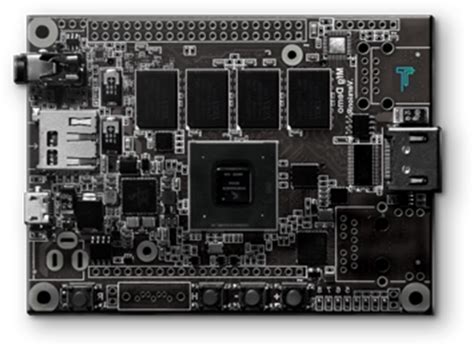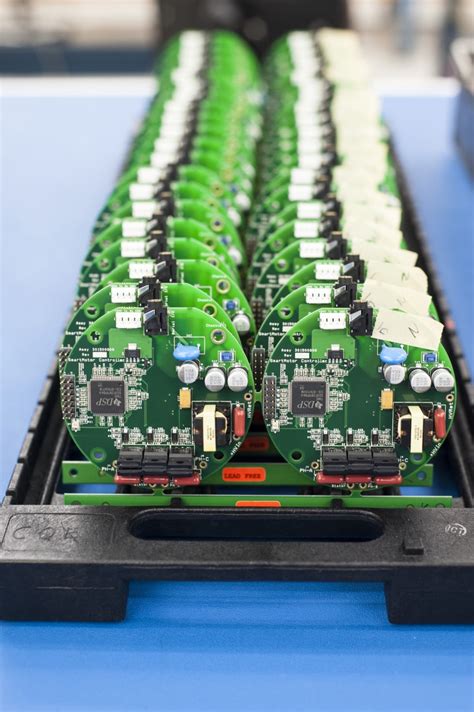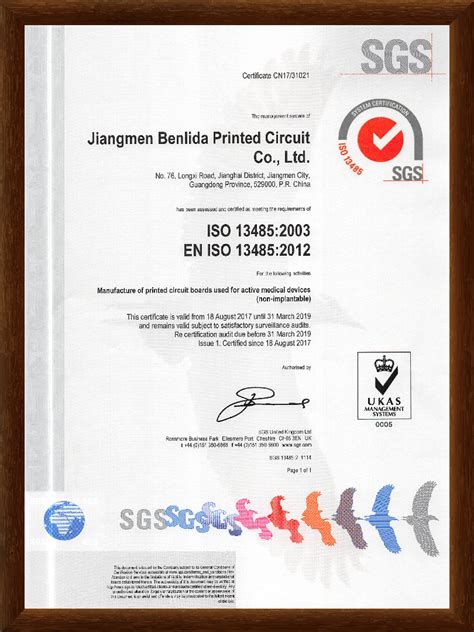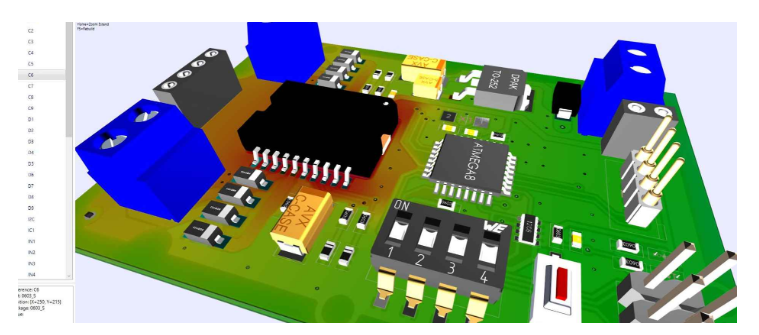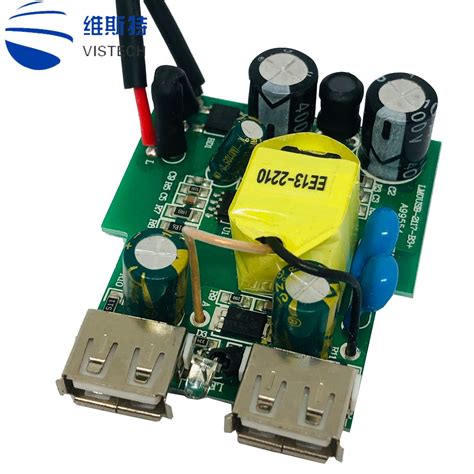Unlocking Innovation: The Rise of Turnkey PCB Electronics Solutions
Key Takeaways
The emergence of turnkey PCB electronics solutions has revolutionized the way businesses approach PCB assembly and manufacturing. By offering a one-stop shop for design, production, and assembly, these solutions significantly reduce the time to market for new products. Companies can leverage the expertise of turnkey providers to navigate a complex landscape, ensuring that every aspect of the production process is meticulously managed. The key advantages include enhanced efficiency and improved product quality, as businesses shift their focus from coordinating various suppliers to fostering creativity in design and innovation. As the demand for rapid and reliable PCBA becomes ever more crucial, embracing these integrated approaches can empower companies to maintain a competitive edge in a fast-paced market. The synergy created by combining various stages of production allows for seamless transitions and fewer errors, ultimately leading to better outcomes for product launches.
Understanding Turnkey PCB Electronics: A Comprehensive Overview
Turnkey PCB electronics have emerged as a revolutionary approach in the manufacturing landscape, drastically changing how PCB assembly and PCBA processes are executed. A turnkey solution offers a one-stop service that encompasses the entire lifecycle of printed circuit boards, from initial design to final assembly. This method presents a multitude of advantages, such as reducing the time-to-market for products and enhancing production efficiency. Companies that leverage turnkey PCB solutions are able to concentrate on their core competencies while outsourcing intricate processes to specialized providers.
The crux of these services lies in their ability to manage all elements of PCBA under one roof, which not only leads to better communication but also minimizes potential delays caused by coordinating multiple vendors. As firms increasingly face competitive pressures, these streamlined processes foster creativity and innovation, allowing teams to dedicate more energy towards product development rather than project management logistics.
| Aspect | Traditional Approach | Turnkey PCB Solutions |
|---|---|---|
| Time Efficiency | Longer lead times | Faster time-to-market |
| Communication Costs | Higher risks of delays | Integrated communication |
| Focus on Core | Divided attention | Enhanced concentration on innovation |
The rise of turnkey PCB electronics signifies a shift towards an integrated model that not only addresses the complexities of modern supply chains but also ensures that companies can maintain competitive advantages in an environment defined by rapid technological advancements and evolving consumer demands.
The Benefits of Turnkey Solutions in the Electronics Industry
Turnkey solutions in the electronics industry offer numerous advantages that significantly enhance efficiency and productivity for manufacturers. One of their most notable benefits is the seamless integration of pcb assembly services, which simplifies the complex process of turning design concepts into finished products. By engaging with a turnkey provider, companies can access a comprehensive suite of services, ranging from initial pcba design to final assembly and testing. This end-to-end approach ensures that all stages of production are aligned, thereby reducing the risk of errors and miscommunication.
Moreover, with turnkey solutions, businesses can experience reduced lead times significantly. The coordinated workflow allows for faster prototyping and quicker adjustments to design specifications when necessary, which is crucial in today’s fast-paced market. Enhanced collaboration between different stages of production leads to increased agility and responsiveness in meeting customer demands. The aggregated expertise that turnkey providers bring not only leads to higher quality pcb assembly outcomes but also fosters innovation by allowing companies to focus more on their core competencies while outsourcing technical challenges.
In an industry characterized by rapid technological advancements, adopting turnkey solutions can also provide a competitive edge. These services often incorporate state-of-the-art technology and best practices that businesses may find challenging to implement independently. This integration of technology into traditional processes helps firms keep pace with evolving standards without significant capital investment in new machinery or training.
In summary, as manufacturers seek to optimize their operations and remain competitive, the benefits derived from turnkey PCB solutions make them increasingly attractive partners within the electronics landscape. By leveraging these comprehensive services, organizations not only streamline their product development cycles but also position themselves favorably for sustained success.
Streamlining Design and Manufacturing: How Turnkey Services Enhance Efficiency
The integration of turnkey PCB electronics into the manufacturing landscape significantly enhances the efficiency of design and production processes. By providing a one-stop solution for PCB assembly—from design through to finished circuit boards—companies can optimize their workflows, leading to faster project turnaround times. This allows organizations to focus on innovation, ultimately reducing the strain on internal resources and mitigating the risks associated with multi-vendor management. The adoption of turnkey solutions facilitates better communication between teams involved in different stages of production, ensuring that specifications are met accurately without the delays that often accompany traditional methods. Moreover, as businesses embrace these services, they benefit from advanced technologies that improve the precision of PCBA manufacturing, including automation in assembly processes and real-time quality checks.
“Efficiency is not just about speed; it’s about delivering high-quality products that meet market demands quickly.”
The modular nature of turnkey solutions allows for easy adaptability in response to changing requirements, which is essential in today’s fast-paced electronics sector. As such, many organizations are recognizing them as invaluable partners in achieving their operational goals while staying competitive in a constantly evolving marketplace. The synergy created through these services empowers companies not only to streamline their operations but also to cultivate a culture of creativity and innovation within their teams.
Navigating Supply Chain Complexities with Turnkey PCB Providers
In today’s fast-paced electronics market, the complexity of the supply chain can pose significant challenges for companies focused on staying competitive. Turnkey PCB providers offer a comprehensive solution that streamlines PCB assembly and PCBA processes, effectively mitigating these complexities. By consolidating design, manufacturing, and assembly services under one roof, these providers facilitate seamless communication and coordination among various stakeholders. This integrated approach not only speeds up production timelines but also reduces the likelihood of errors that can arise when multiple vendors are involved. Furthermore, turnkey solutions allow companies to easily adapt to fluctuating demand while minimizing overhead costs associated with managing multiple supplier relationships. As businesses increasingly rely on these providers, they gain access to a wealth of expertise and resources that empower them to focus on innovation and product development rather than getting bogged down by logistical challenges. Thus, partnering with turnkey PCB providers enables companies to navigate supply chain complexities more efficiently while enhancing their overall operational agility.
Technological Advancements Driving the Adoption of Turnkey Solutions
The landscape of turnkey PCB electronics is witnessing rapid transformation, driven largely by significant technological advancements that enhance the efficiency and quality of PCB assembly processes. Modern PCBA techniques incorporate advanced automation, artificial intelligence, and machine learning, which streamline both the design and production phases. Automation minimizes human error and accelerates production timelines, allowing companies to achieve a smooth workflow from prototype to final product. Furthermore, by leveraging state-of-the-art software tools, businesses can optimize their designs in real-time, ensuring that every aspect of the pcba meets strict industry standards. Additionally, advancements in materials science have led to the development of highly reliable substrates that enhance product durability and performance. These innovations not only empower companies to deliver higher quality products but also enable them to respond swiftly to market demands. As organizations continue to prioritize speed and efficiency, the integration of these technologies will become paramount in establishing robust partnerships with turnkey PCB providers, thereby facilitating a more agile approach in an increasingly competitive marketplace.
Case Studies: Success Stories from Companies Utilizing Turnkey PCB Services
Examining successful implementations of turnkey PCB services reveals significant achievements across various sectors. For instance, a leading consumer electronics company utilized turnkey solutions to enhance its product lineup, dramatically decreasing its time-to-market for new gadgets. By relying on a single provider for both design and pcb assembly, they could streamline workflows, resulting in a 30% reduction in manufacturing time. This shift allowed engineers to concentrate on innovation rather than logistics, contributing to the development of industry-leading features in their devices. Another notable case comes from an automotive manufacturer that integrated pcba services into its production process. By adopting turnkey PCB solutions, they successfully navigated complex supply chain issues while ensuring quality and compliance with stringent safety standards. The incorporation of advanced materials and technology providers not only improved the durability of their systems but also paved the way for innovative safety features that have set new benchmarks in the market. These examples highlight how companies employing turnkey strategies can achieve operational excellence and maintain a competitive edge while responding to rapidly changing consumer demands.
Future Trends in PCB Electronics: What to Expect from Turnkey Solutions
As the electronics industry continues to evolve, turnkey PCB electronics solutions are anticipated to play an increasingly pivotal role in shaping future trends. One of the most significant developments is the growing emphasis on sustainability in pcb assembly processes. Manufacturers are now focusing on eco-friendly materials and production techniques that minimize waste while maintaining high-quality standards. Additionally, the rapid advancement in automation technologies is set to transform pcba practices, allowing for faster production cycles and improved precision. Furthermore, the integration of artificial intelligence and machine learning into turnkey solutions promises enhanced design capabilities, leading to innovative product features that cater to a more demanding market. As companies seek differentiation, partnering with turnkey PCB providers will become essential for staying ahead of competitive pressures. This trend underscores a shift towards agility, where the ability to respond swiftly to market changes will be crucial for success. The synergy between advanced technologies and streamlined operations in turnkey solutions will not only redefine efficiency but also open new avenues for creativity in electronic design and manufacturing.
Conclusion
The integration of turnkey PCB electronics solutions represents a significant evolution within the electronics industry, marking a shift toward more efficient and innovative practices. By adopting these comprehensive services, companies not only enhance their PCB assembly capabilities but also leverage the benefits of streamlined processes. The ability to manage design, manufacturing, and assembly under one umbrella enables faster turnaround times and consistently high-quality PCBA outputs. Moreover, as businesses face increasingly complex supply chain dynamics, partnering with turnkey providers simplifies these challenges and fosters a more agile production environment. Companies are empowered to focus on creativity and innovation while ensuring that their products remain competitive in a rapidly changing market landscape. With the ongoing advancements in technology, the use of turnkey PCB solutions will likely continue to rise, further reinforcing their essential role in the future of electronics manufacturing.
FAQs
In the ever-evolving landscape of electronics, turnkey PCB electronics solutions have emerged as a vital component for businesses looking to maintain their competitive edge. One commonly asked question is how pcb assembly differs from traditional manufacturing methods. The key distinction lies in the holistic approach offered by turnkey solutions, which not only cover pcba but also integrate design, procurement, and assembly into a single cohesive service. This integration allows companies to reduce lead times, simplify their supply chains, and enhance product quality all while minimizing the need for extensive in-house resources.
Another frequent inquiry revolves around the cost implications of turnkey services compared to traditional methods. While it may seem that upfront costs are higher, many businesses find that the long-term savings—realized through increased efficiency and reduced waste—offset initial expenditures. Moreover, by outsourcing to experienced turnkey providers, companies can focus their resources on innovation and product development rather than the complexities of manufacturing logistics.
Furthermore, clients often ask about the scalability of turnkey PCB services. The flexibility inherent in these solutions allows organizations to scale production up or down swiftly in response to market demands or project scopes. This adaptability is becoming increasingly crucial with rapid technological shifts influencing consumer preferences and industry trends.
By addressing these common questions, businesses can gain a clearer understanding of how turnkey PCB electronics solutions offer not just immediate benefits but also pave the way for sustainable growth in a competitive market landscape.

